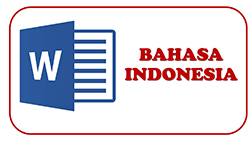Penerapan Metode Sorogan dalam Pembelajaran Kitab Fathul Qorib Santri Pondok Pesantren
Abstract
This research is based on the writer's curiosity about the application of the Sorogan Method in the Study of the Fathul Qorib Santri Book as well as knowing the Strengths and Weaknesses of the Sorogan method in the Study of the Fathul Qorib Book at the Al-Fattah Siman Islamic Boarding School Sekaran Lamongan. The purpose of this research is to find out How to Apply the Sorogan Method in Learning the Book of Fathul Qorib Santri and know the advantages and disadvantages of the Sorogan method in Learning the Book of Fathul Qorib at the Al-Fattah Siman Islamic Boarding School Sekaran Lamongan. This type of research is qualitative research. Data collection methods in this study were interviews, observation and documentation. While the data analysis techniques the author uses data reduction, data presentation, and verification or drawing conclusions. The results showed that (1) The application of the Sorogan Method in Learning the Book of Fathul Qorib Santri included the students coming to a teacher or ustadzah, so that the ustadzah listened and provided corrections to the reading of the book he had read in front of the ustadzah when they had their turn forward. With this application, students are able to read the fathul qorib book smoothly and correctly according to nahwu shorof, and students are able to explain the intent/content of the book material they read at the same time the students seem to be more active in following the sorogan method of learning the book. (2) The advantages and disadvantages of the ssloganmethod in learning the Fathul Qorib book include the advantages that students can be guided, assessed in reading books and the closeness of students with teachers can be close. While the weakness is that there is only 1 teacher who teaches and makes students tired because the method requires craft and perseverance.
Downloads
References
Asyrofi, Syamsuddin. (2010). Metodologi Pembelajaran Bahasa Arab. Yogyakarta: Idea Press.
Aly, Abdullah. (2011). Pendidikan Islam Multikultural di Pesantren. Yogyakarta: Pustaka Pelajar.
Arief, Armai. (2002). Pengantar Ilmu dan Metodologi Pendidikan Islam, Jakarta: Ciputat pers.
Haedari, M. Amin. (2004). Masa Depan Pesantren dalam Tantangan Modernitas dan Tantangan Kompleksitas Global. Jakarta: IRD Press.
Junaidi, Kholil. (2016). Sistem Pendidikan pesantren di Indonesia. Jurnal Pendidikan Islam. 2, (1)
Kurniawati, Anik. (2018). Pelaksanaan metode sorogan dalam mengatasi kesulitan membaca Al-qur’an pada siswa kelas IV di SDN lii Sidomulyo Ampel Boyolali.
Majid, Abdul. (2013). Strategi Pembelajaran, Remaja Rosdakarya, Bandung.
Masyhud, M. Sulthon dan Khusnurdilo, Moh. (2003). Manajemen Pondok Pesantren. Jakarta: Diva Pustaka.
Qomar, Mujamil. (2002). Pesantren dan Transformasi metodologi menuju Demokrasi Institusi. Jakarta: Erlangga
Sagala, Syaiful. (2003). Konsep dan Makna Pembelajaran. Bandung: Alfabeta.
Sanjaya, Wina. (2005). Pembelajaran dalam implementasi kurikulum berbasis kompetensi. Jakarta: Kencana Pranada Media Group.
Sugiyono. (2017). Metode Penelitian Pendidikan Pendekatan Kuantitatif Kualitatif, dan R&D. Bandung. Alfabeta.
Undang-undang Republik Indonesia no. 20 tahun 2003 Tentang Sistem Pendidikan Nasional, Bandung: Cipta Umbara.
Waked, Ahmad. (2016). Efektivitas Metode Sorogan Berbantuan Tutor Sebaya terhadap Pemahaman Konsep Matematika. JES-MAT. 2 (1), 2
Yasmandi. (2005). Modernisasi Pesantren, Kritik Nurcholis Madjid Dalam Pendidikan Islam Tradisional. Jakarta Ciputat Press.





.png)










